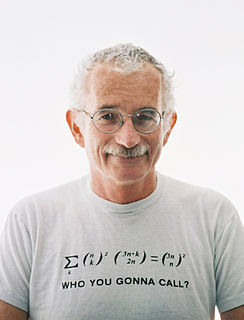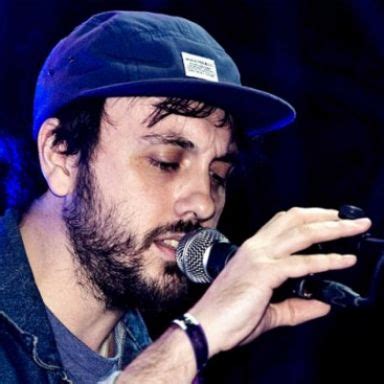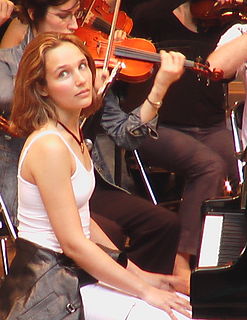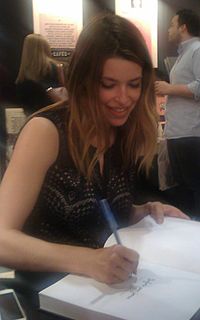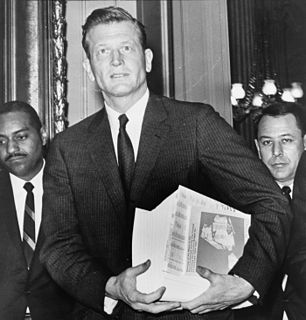A Quote by Pardis Sabeti
My scientific work is much more practically minded - to change something, to effect something. And the music I do is much more soft power, about changing minds.
Related Quotes
You can keep counting forever. The answer is infinity. But, quite frankly, I don't think I ever liked it. I always found something repulsive about it. I prefer finite mathematics much more than infinite mathematics. I think that it is much more natural, much more appealing and the theory is much more beautiful. It is very concrete. It is something that you can touch and something you can feel and something to relate to. Infinity mathematics, to me, is something that is meaningless, because it is abstract nonsense.
For me, writing music is a way of processing the world. It's not a concrete thing, as in, "This piece is about giraffes." It's much more of an emotional sort of thing. I want people to find something out about themselves through my music, something that was inaccessible before, something that they were suppressing, something that they couldn't really confront.
There is so much more information about the scientific world than there was a generation ago that we have all increased our opportunities for ignorance. There are more things not to know. ... The machinery that we deal with is so much more complex that it is possible to become dysfunctional at a much higher level of performance.
Sometimes when you write something, you have that day when you start writing and you feel really good, and you start changing it. At the end, it lost the essence. It lost the first idea, the energy that it had, it's going down after every change. And at the end it's something soft and too much rewritten or too much rebuilt that doesn't have the same energy as the beginning. So, I like the first takes because of that, you know. It has that first energy that sometimes it's difficult to recreate.
I imagine that as contemporary music goes on changing in the way that I'm changing it what will be done is to more and more completely liberate sounds from abstract ideas about them and more and more exactly to let them be physically uniquely themselves. This means for me: knowing more and more not what I think a sound is but what it actually is in all of its acoustical details and then letting this sound exist, itself, changing in a changing sonorous environment.
Music can move us to the heights or depths of emotion. It can persuade us to buy something, or remind us of our first date. It can lift us out of depression when nothing else can. It can get us dancing to its beat. But the power of music goes much, much further. Indeed, music occupies more areas of our brain than language does-humans are a musical species.
Everyone was saved once by music. So I decided to REALLY work on my songs and not just "play" - to make something really good, more "professional." Something which makes you feel better; a song who says: "I know how much you're sad, and you're not alone, this is a song made for you." I really wanted to help with my music.
There's something about the awareness of the limits that makes you tune in more to your surroundings and I've experienced a lot of pleasure or even joy in working with those alternatives and also it's made me so much more aware of just how much work we can make those sources of supply do for us, whether it's electricity or fossil fuels.

